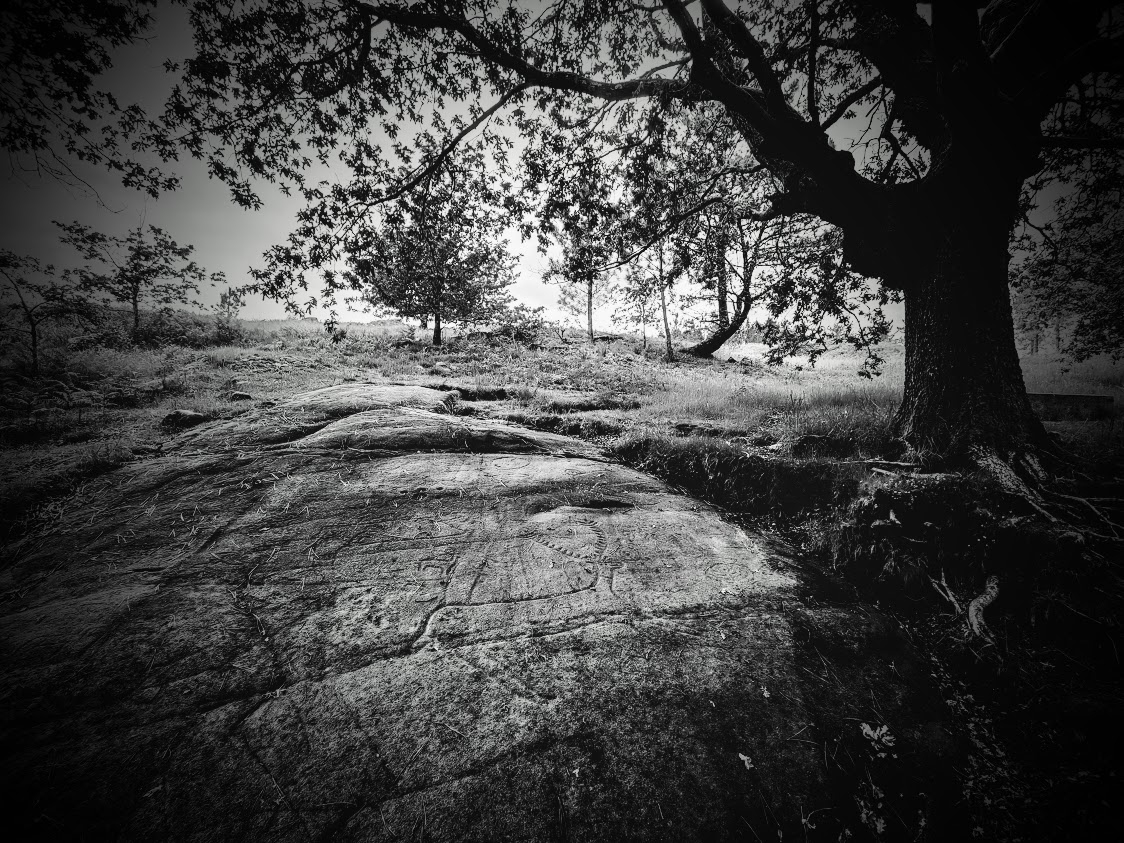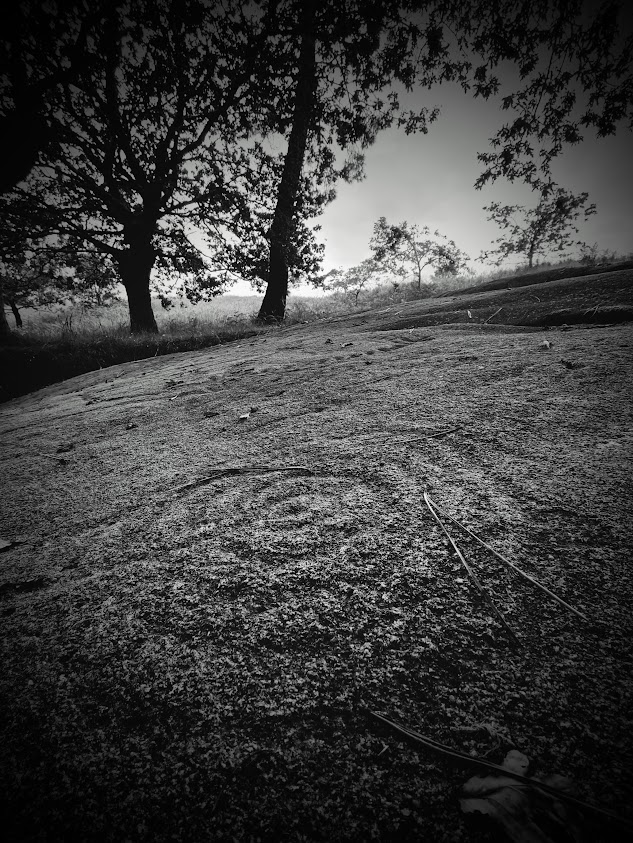I Worry About the Algorithm Choosing our Stories
hive-109288·@riverflows·
0.000 HBDI Worry About the Algorithm Choosing our Stories
Once I became a teacher of literature because I loved it myself - the immersion in words and worlds was a glistening treasure. Over time, and over many years of teaching, I no longer feel the passion that I need to teach it. I feel old. The lament of 'kids don't read anymore' is no longer an unproven statement, a fear mongering - it's a fact. Even adults - even me - choose short bites in short bytes over longer texts. I wonder how important it is. We still study stories, earnestly, fervently - whether it's a real-life narrative on a Tik Tok reel or a film or podcast. We are who we are because we *story*.  ## What it means to 'story' If story was a verb, the *act* of 'story' would mean to create, tell, or share a narrative. The story teller constructs a plot, brings to life character, threads together details, perhaps narrates it, elaborates upon it. Despite being a lover of books, I must concede it should not matter the form - a news article, a podcast, a drama series, a film, a poem, a reel. Humans will always *story*. > **“Listen, and you will realize that we are made not from cells or from atoms. We are made from stories.” ― Mia Couto** As a reader of the story, we are also 'story-ing'. We story when we engross ourselves in a narrative. We engage with it's content. We immerse ourselves into the deeper meanings in the text, we imagine the events and characters as they unfold, we analyse the structure, the style, appreciating how the story has been created, made, crafted. To 'story' as a reader means to explore the layers of meaning in the narative, fully experiencing and appreciating it. ### Why we Story Stories are essential for society - they preserve cultural values and traditions in a continuity that gives us our identity. They are education tools, as well - what was it like to be persecuted in the Holocaust, to be queer as the Aids epidemic took hold in the '80s, to be black in America in the 1940's? We learn about different perspectives, cultures and experiences, therefore fostering empathy and broadening world views. Stories also connect and unite us. By sharing our stories we process our experiences, connect with others, inspire and be inspired. They can serve as persuasion, propaganda, or better, for advocacy for social change. It is never *just* a story. ### I Miss How Stories Used to Be Told I miss literature. I miss choosing a book based on reviews or a friend's recommendation. I miss the books that were chosen for me at university because they were Important with a capital 'I', even though I never read Ulysses. I learn everything I knew about the world through literature. I learnt how totalitarian regimes take control, how being a minority means having people judge you by a single story of yourself that limits you, demeans you. > **“Stories are the way to capture the hopes, dreams and visions of a culture. They are true as much as data are true.” - Ben Okri, author** I learnt of the Amazon rainforest and the earthquake hundreds of years ago in Portugal. I learnt about propaganda and how to survive various apocalypses. I learnt about dustbowl America and East Berlin before the fall of the wall. I miss the beauty of how words would put together a story. I am not so closed minded that I cannot recognize that these stories are told in different mediums, now. But do we engage as deeply, as critically, as we would a longer form narrative? A complex novel with multi layered characters versus the one thirty second clip of a child in Gaza? ### I Worry About the Algorithm Choosing our Stories What would Orwell have said about the algorithm? Big Brother would have loved it. What a wonderful tool to make everyone the same. What a wonderful tool to keep people scared, wary, frightened. To mould and shape people's loyalties, allegiances, politics. To push people into the same alleyways of thought. To make them believe their choices, their beliefs, are real ones, and not influenced by pushing people into alleyways. Algorithms’ influence is intricately linked to the problem of storytelling in the digital era - they curate everything we digest, from news articles to social media posts and advertisements, shaping the stories we come across in real time. So fragmented, we are forced into bias, our existing beliefs and preferences reinforced, not challenged. The stories we engage with are filtered through a lens of *engagement* rather than accuracy. We're in echo chambers where some stories are amplified and others hidden. How does this influence our self-perception? Our collective identity? How are our own internal stories of success and happiness distorted and controlled? How much is the story we arrive at controlled by algorithms that prioritise outcomes, undermining the rich diversity of human experience?  Yep, Orwell would have hated the alogrithm. He would have seen them as modern forms of surveillance and manipulation, fearing their potentail to control and distort information, cementing propaganda and removing the autonomy of the individual. He would have argued they were a form of totalitarian control. 2024, 1984 - little difference. Just in the 'how' of story-ing. ### And So, Teach Your Children to Story Teach your children to question, to analysis, to critique a narrative. Where does it come from? Who funded it? Can we trust them? Is there a story we are missing? The fox kills the chickens, yes. But *why*? What can be done to stop the fox? What is the fox's story? > **“It's like everyone tells a story about themselves inside their own head. Always. All the time. That story makes you what you are. We build ourselves out of that story.” ― Patrick Rothfuss, The Name of the Wind** Teach your children to love a story, to seek out the more complex, beautifully written stories that move the heart. Teach them to value long form writing, poetry, art. Teach them how deep the rabbit hole goes, and how darkly magnificent it can be. Teach your children to write their own stories, stories that change the way people think not in a way that forces compliance, but that involves their hearts and minds. Teach them that they are the own authors of their stories. <center> # `With Love,`  **Are you on HIVE yet? Earn for writing! Referral link for FREE account [here](https://hiveonboard.com?ref=riverflowsJ)**</center> <a href="https://peakd.com/@naturalmedicine">
👍 joeyarnoldvn, liaminit1, ma3str0, scooter77, mrprofessor, riyuuhi, fee-service-new, anima-shot, stortebeker, allover, therealyme, scooter77.pob, new.things, consciouscat, mind.force, drricksanchez, hive-127039, artemisshares, hivelift, kimzwarch, vipservice, artsygoddess, hotsauceislethal, canna-collective, akmenos, simplymike, shanibeer, organicgardener, oac, noekie, battlemaster, naturalkiller, monsterdoom, mylibrary, bfciv, external-panic, littlebee4, royaleagle, flxlove, ltcih, ltcij, ltcil, ityp, t1pf, golddeck, logantron, tobago, hackersfund, doomsdaychassis, chetanpadliya, aagabriel, plantstoplanks, fionasfavourites, thanksforplaying, sbi6, sbi-tokens, repayme4568, novacadian, teamaustralia, minismallholding, dougbudlong, steemitcolombia, anttn, arunava, whitelightxpress, sneakyninja, mastergerund, thedailysneak, homesteaderscoop, alchemystones, hive-113967, izzydawn, realtreebivvy, life-relearnt, caribehub, robibasa, halukshananah, anna-newkey, hive-189277, unity-freedom, denmarkguy, cryptoknight12, sagescrub, tinyhousecryptos, hive-189742, wongi, quduus1, graciousvic, wallets4sale, macksby, labyrinths, theluvbug, cosmictriage, uknowm3, qubes, malomi, abcor, cards4rent, samstonehill, wildhomesteading, traisto, tryskele, fixyetbroken, skiptvads, fotostef, helgalubevi, guchtere, solominer, taintedblood, whangster79, recoveryinc, samrisso, tomtothetom, michupa, actifitgirl, movement19, deirdyweirdy, acantoni, simplifylife, amy-goodrich, prometehum, allyinspirit, bearone, bghandmade, squareonefarms, soyrosa, nateaguila, teerawith, abh12345, jayna, philnewton, racibo, pladozero, gloriaolar, senorcoconut, travoved, freemotherearth, barge, davidgermano, diabonua, howiemac, themightysquid, tigerrkg, exator, steemflow, indiaunited, vishire, ragavee, muterra, deimage, heteroclite, adeade123, codingdefined, splash-of-angs63, kamaleshwar, kilvnrex, chinay04, hardikv, inuke, bala41288, indiaunited-bot, dikshabihani, yogeshbhatt, disha30, chandra.shekar, kannannv, prosocialise, imacryptogeek, flourishandflora, bobinson, shonyishere, frames, rainbowbala, khan.dayyanz, badfinger, bozz.sports, okluvmee, gamerzaza, emreal, eunice9200, solumviz, cindynancy, pinkchic, abhay2695, etblink, dynamicrypto, kanibot, godfather.ftw, iviaxpow3r, ingi1976, hivedrip, thorlock, balaz, likedeeler, silenteyes, demonicore, smartvote, moonkiara, blkchn, appreciator, lucianav, elgatoshawua, fotomaglys, abu78, flemingfarm, bluemist, sunsea, kkarenmp, bertrayo, actioncats, aprasad2325, yoieuqudniram, malhy, eolianpariah2, zutodoterreno, detlev, ravenmus1c, discoveringarni, noelyss, noalys, rima11, seryi13, les90, inciter, kattycrochet, thereikiforest, thelogicaldude, beerlover, jane1289, xlety, sagarkothari88, bhattg, doriangel, good-karma, esteemapp, esteem.app, manojbhatt, ecency, ecency.stats, photolovers1, bigorna1, isdarmady, ericvancewalton, ahlawat, mfontom, ace108, mrchef111, familyprotection, canadian-coconut, ecotrain, elamental, steelborne, fenngen, jerrybanfield, bia.birch, ablaze, onyfest, teknon, generikat, kriszrokk, preparedwombat, bengiles, nahid43, old-guy-photos, goldenoakfarm,